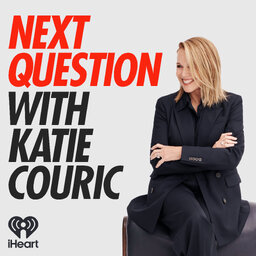How to Feel Better with Sophie Grégoire Trudeau
You’ve probably heard the name Sophie Trudeau, best known as the glamorous wife of Justin Trudeau, the Prime Minister of Canada. But Sophie is a whole lot more than that. In her new book, Closer Together: Knowing Ourselves, Loving Each Other, she candidly shares a lot about her life and struggles. But Sophie has also incorporated the best science and interviewed the leading researchers about how our brain handles life’s biggest challenges–her book tackles everything from mindfulness to the function of the vagus nerve. Her endless hope and practical approach to knowing ourselves is an invitation to curiosity, progress, and inner peace.
In 1 playlist(s)
Next Question with Katie Couric
Tired of political headlines that feel like déjà vu? Wondering if you actually need to care about ev…Social links
Follow podcast
Recent clips

The Heart of Longevity with Dr. Rhonda Patrick
1:11:59

Kate Hudson At Her Best
39:12

Katie’s One-on-One With PA Governor Josh Shapiro
53:29
 Next Question with Katie Couric
Next Question with Katie Couric